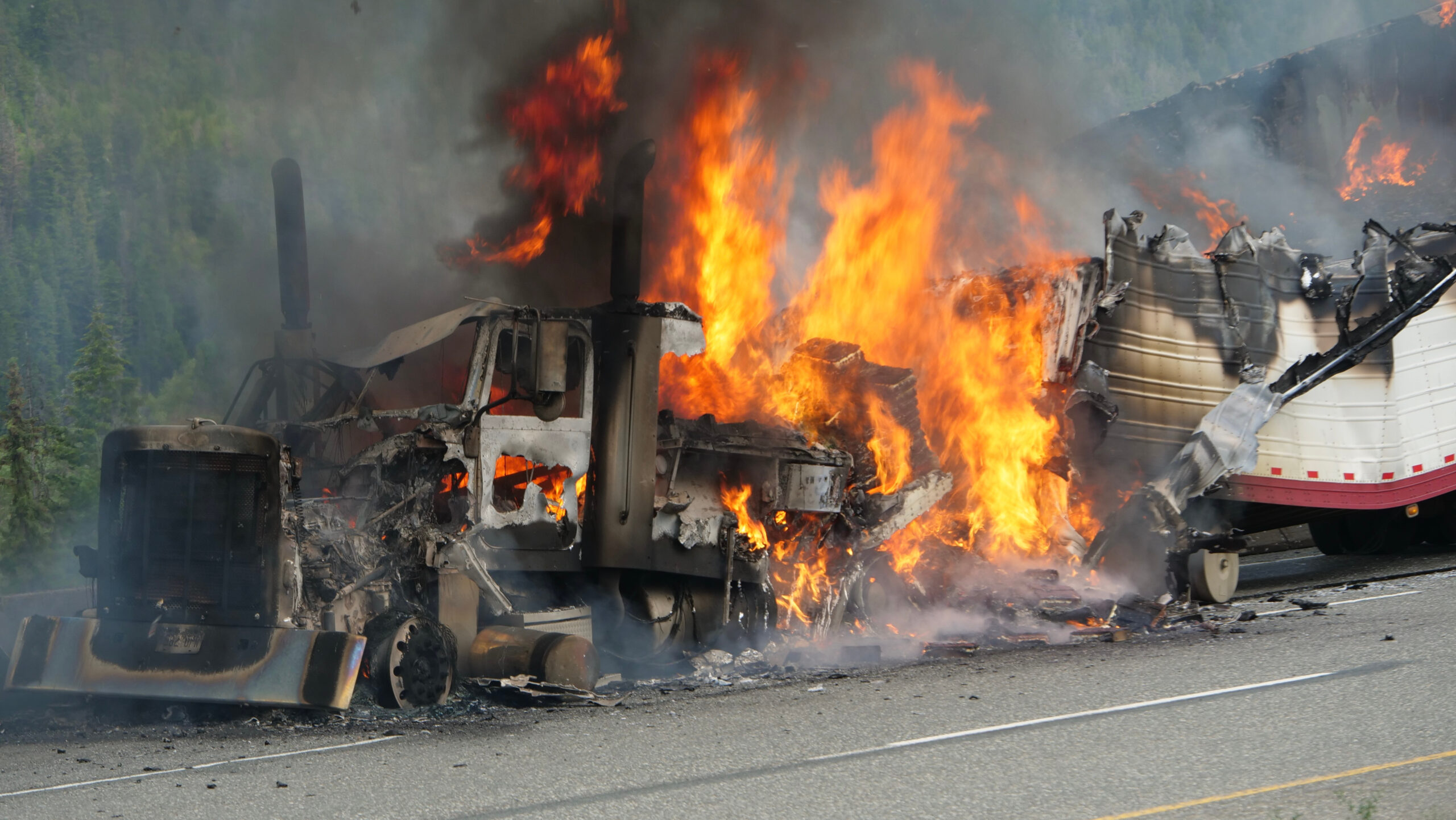 Trucking insurance protects your truck drivers, trucks, and loads being hauled. Trucking insurance is essential for any trucking business, as it can help cover the costs and liabilities that may arise from accidents, thefts, lawsuits, and other risks. However, there is a common myth that trucking insurance is just about covering vehicle damage. This myth assumes that the only purpose of trucking insurance is to pay for the repairs or replacement of your truck and trailer in case of a collision or vandalism. While this is certainly an important aspect of trucking insurance, it is not the only one. In fact, trucking insurance covers much more than vehicle damage, and ignoring or neglecting the other coverages can expose your trucking business to serious financial and legal consequences.
Trucking insurance protects your truck drivers, trucks, and loads being hauled. Trucking insurance is essential for any trucking business, as it can help cover the costs and liabilities that may arise from accidents, thefts, lawsuits, and other risks. However, there is a common myth that trucking insurance is just about covering vehicle damage. This myth assumes that the only purpose of trucking insurance is to pay for the repairs or replacement of your truck and trailer in case of a collision or vandalism. While this is certainly an important aspect of trucking insurance, it is not the only one. In fact, trucking insurance covers much more than vehicle damage, and ignoring or neglecting the other coverages can expose your trucking business to serious financial and legal consequences.
What Else Does Trucking Insurance Cover?
Trucking insurance covers a variety of coverages that address different types of risks and liabilities that your trucking business may face. Some of the most common and important coverages are:
- Liability coverage: This covers the damages and injuries that you or your drivers cause to other people or property in an accident. It can include bodily injury liability, property damage liability, and environmental liability. Liability coverage is mandatory in most states and by the federal government, and the minimum limits vary depending on the type and weight of your truck and the cargo you haul. Liability coverage can protect you from lawsuits and claims that could otherwise bankrupt your trucking business.
- Cargo coverage: This covers the loss or damage of the load that you transport for your customers. It can include theft, fire, collision, spoilage, contamination, or rejection. Cargo coverage is usually required by your customers or brokers, and the amount and terms depend on the type and value of your cargo. Cargo coverage can protect you from losing revenue and reputation due to cargo-related incidents.
- Physical damage coverage: This covers the damage to your own truck and trailer caused by collision, fire, theft, vandalism, or natural disasters. It can include comprehensive coverage, collision coverage, and specified perils coverage. Physical damage coverage is optional but highly recommended, especially if you have a newer or more expensive truck or trailer. Physical damage coverage can protect you from losing your assets and income due to vehicle-related incidents.
- Other coverages: There are also other coverages that you may need or want to add to your trucking insurance policy depending on your specific needs and preferences. Some examples are:
- Non-trucking liability coverage: This covers the damages and injuries that you or your drivers cause to other people or property while using your truck for personal or non-business purposes.
- Trailer interchange coverage: This covers the damage to a trailer that you do not own but are using under a trailer interchange agreement with another carrier.
- On-hook towing coverage: This covers the damage to a vehicle that you are towing or hauling for someone else.
- Workers’ compensation coverage: This covers the medical expenses and lost wages of your employees who are injured on the job.
- Umbrella coverage: This provides extra liability protection beyond the limits of your primary liability coverage.
How To Choose The Right Trucking Insurance Coverages?
Choosing the right trucking insurance coverages for your trucking business is not a simple or easy task. It requires careful consideration of various factors, such as:
- Your legal obligations: You need to comply with the state and federal regulations that apply to your trucking business. These regulations may specify the minimum amount and type of coverages that you need to have for your trucks, drivers, and cargo.
- Your customer requirements: You need to meet the expectations and demands of your customers or brokers. They may require you to have certain amount and type of coverages for their cargo or contracts.
- Your risk exposure: You need to assess the level and frequency of risks that you face in your trucking operations. These risks may depend on factors such as your truck type, cargo type, route type, driver experience, safety record, etc.
- Your budget constraints: You need to balance the cost and benefit of each coverage option. You want to have enough coverage to protect your trucking business from potential losses and liabilities, but not too much that it becomes unaffordable or unnecessary.
Trucking insurance is not just about covering vehicle damage, but much more. It covers a variety of coverages that protect your trucking business from different types of risks and liabilities that you may encounter in your trucking operations. By choosing the right trucking insurance coverages for your trucking business, you can save money, avoid trouble, and grow your business. If you have any questions regarding your trucking insurance, please do not hesitate to contact Prestige Trucking Insurance.